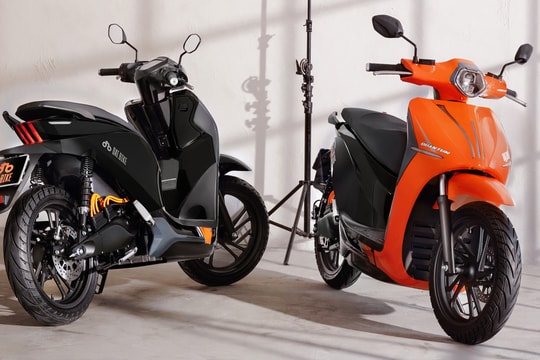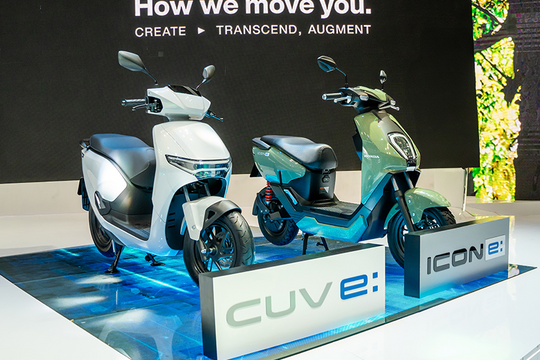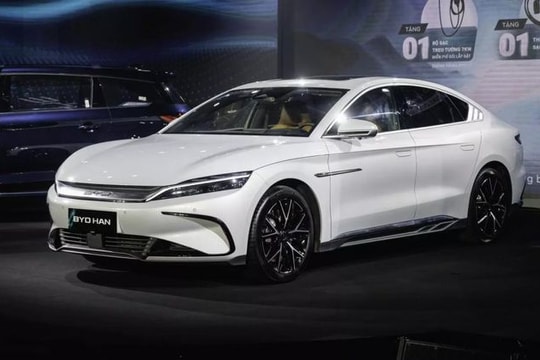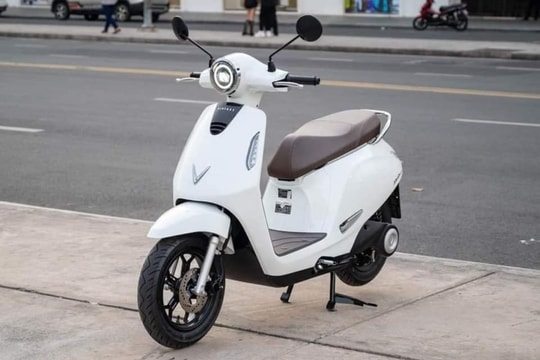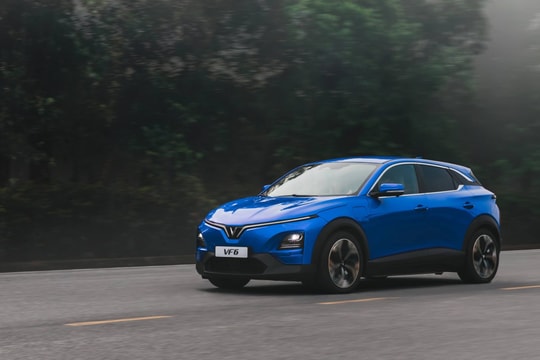Import tax on auto parts to 0%: Will domestic car prices drop sharply?
Reducing import tax on many types of auto parts to 0% will help domestically assembled cars have the opportunity to reduce costs and increase competitiveness with imported cars.
The Government has just issued Decree 125/2017/ND-CP amending and supplementing a number of articles of Decree No. 122/2016/ND-CP dated September 1, 2016 of the Government on Export Tariff Schedule, Preferential Import Tariff Schedule, List of goods and absolute tax rates, mixed tax, and import tax outside the tariff quota.
Notably, Decree 125/2017/ND-C amends the preferential import tax rate for imported auto parts under the Tax Incentive Program.
According to Decree 125, from January 1, 2018, imported auto parts in group 98.49 in the import tax schedule will apply a preferential tax rate of 0%.
However, at the time of customs declaration registration, enterprises declare and pay taxes according to the normal import tax rate or preferential import tax rate or preferential import tax rate or special preferential import tax rate according to current regulations, not applying the 0% preferential import tax rate of group 98.49.
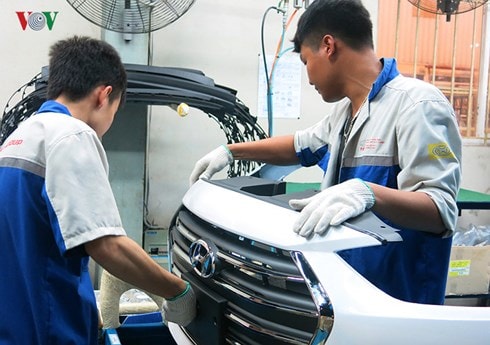 |
| Reducing import tax on many types of auto parts to 0% will help domestic car assembly businesses increase their competitiveness. |
However, not all automobile manufacturing and assembling enterprises are eligible to apply, but must comply with many strict conditions. One of the requirements is that enterprises must ensure the standards of automobile manufacturing and assembling enterprises according to the Government's regulations on conditions for manufacturing, assembling, importing and providing automobile warranty and maintenance services.
Regarding the conditions for applying the Tax Incentive Program, the Government stated clearly: Enterprises must still commit to producing and assembling automobiles that meet emission standards level 4 (period from 2018 - 2021) and level 5 (from 2022 onwards) and achieve the prescribed output. The output of the automobile model committed to be produced and assembled domestically (abbreviated as the minimum specific output for the committed automobile model) is specified for each specific period. This automobile component must be of a type that cannot be produced domestically and must ensure the level of discreteness.
In addition, the preferential import tax reduction for imported auto parts in these 5 years is accompanied by conditions on the production and assembly output of vehicles (the total output for all vehicle models and the specific output for a vehicle model that a participating enterprise must commit to achieve annually) and the domestic production value ratio of the committed vehicle model that must be achieved annually, for vehicle assembly.
The output of domestically produced and assembled cars is specified for each specific stage stated in the roadmap of the tax incentive program.
Specifically, according to the roadmap set by the Ministry of Finance, the minimum total output for passenger cars with less than 9 seats, with engines of 2,000 cc or less that businesses must achieve in 2018 must be 34,000 vehicles and increase by 16% each year until 2022 to 61,000 vehicles and the total period of 5 years must reach 234,000 domestically assembled vehicles. In which, the minimum output of a single car model must reach 20,000 vehicles and the domestic production value ratio is 20% (in 2018) and this number increases to 36,000 vehicles and 40% respectively in 2022.
Along with that, to receive tax incentives for imported components, businesses must submit documents and procedures to implement the Tax Incentive Program for approval by the authorities.
Enterprises shall submit their registration dossiers to participate in the Tax Incentive Program at the customs office where the enterprise has its head office or where it has a manufacturing or assembly plant to register to participate in the Tax Incentive Program immediately after the date this Decree is signed or at any time each year during the period of the Tax Incentive Program. The time of participation in the Tax Incentive Program is calculated from the date of the registration document onwards.
In case an enterprise does not meet the conditions to apply for the Tax Incentive Program, the Customs authority shall have a written response to inform the enterprise.
The specific preferential import tariff schedule for specific tax lines is being reviewed by the drafting agency, the Ministry of Finance, for the final time before being widely released.
With this regulation, domestically assembled cars have the opportunity to reduce costs and increase competitiveness with imported cars when from 2018, import tax on cars in ASEAN will also be 0%./.
According to VOV
| RELATED NEWS |
|---|



